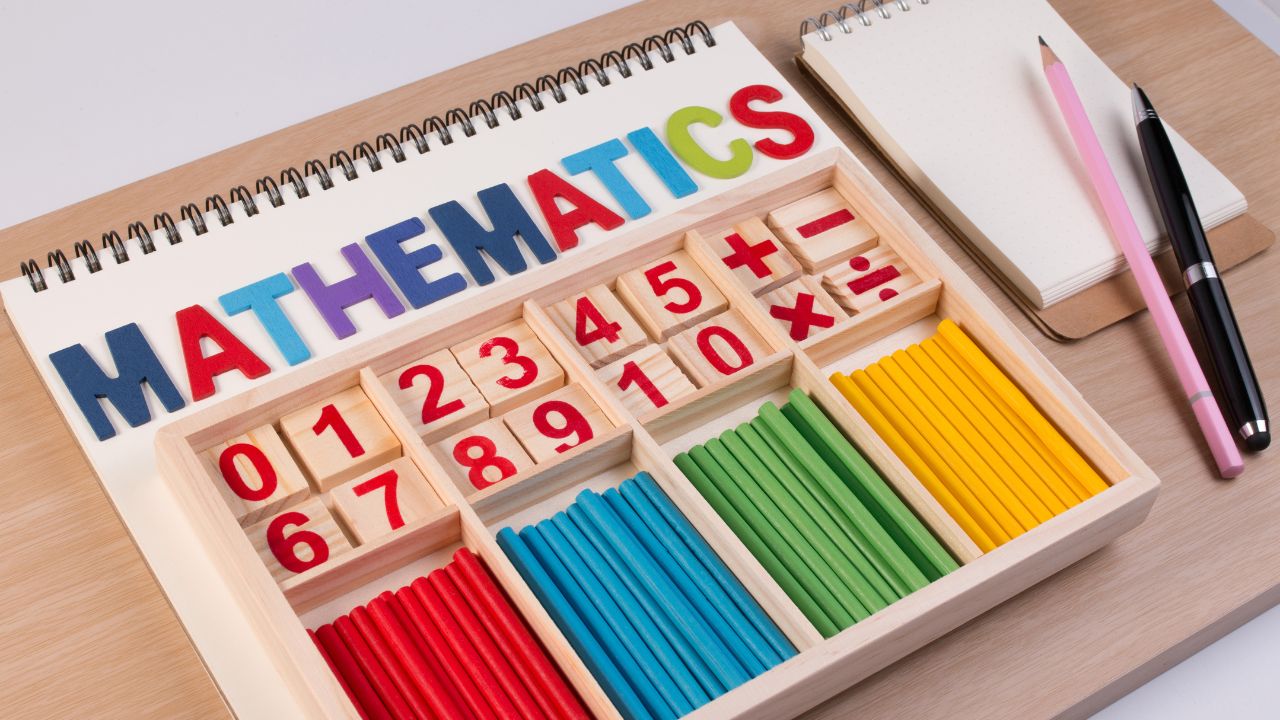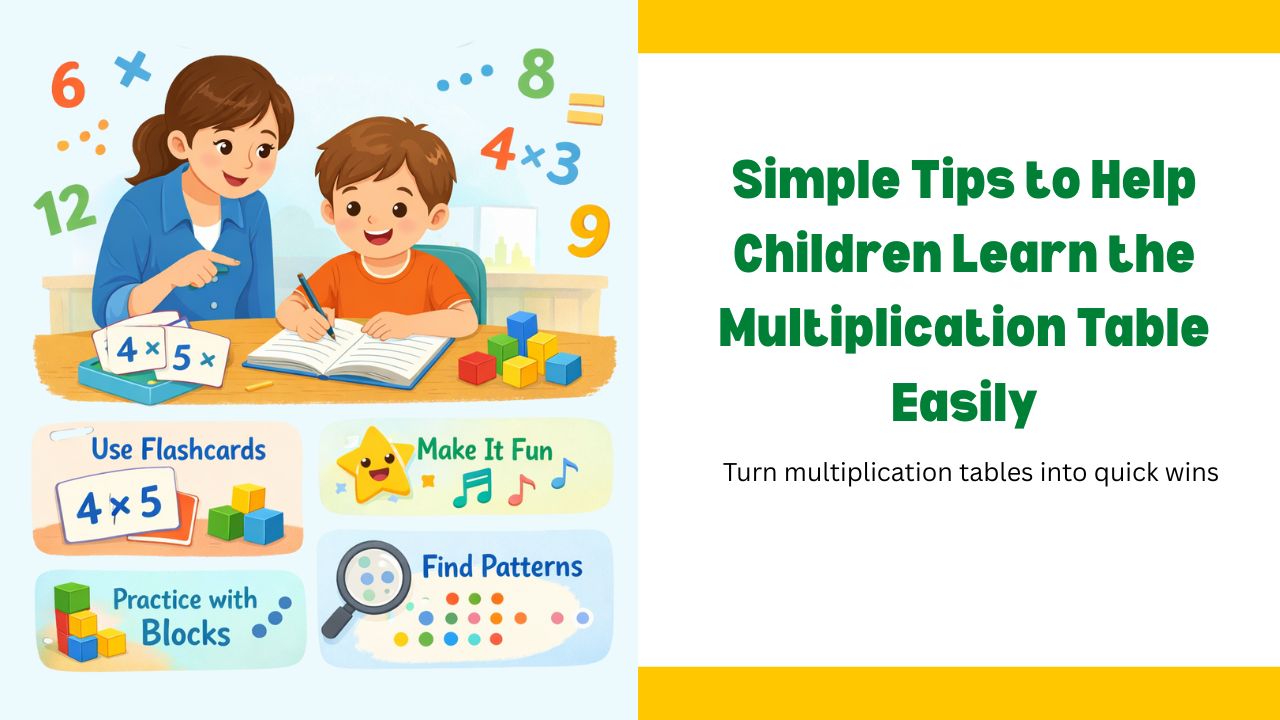How to Train Your Brain for Better Calculations
Did you know that math and memory are closely connected? Your brain processes numbers just like it stores facts, experiences, and emotions. When your working memory is strong, solving math problems becomes faster and easier.
Many students struggle with mental calculations because they rely too much on calculators and written methods. However, with the right techniques, you can train your brain to process numbers faster, more efficiently, and with greater accuracy.
1. The Science Behind Math and Memory
How the Brain Processes Numbers
Your brain has a specialized network for handling numbers, mainly in the prefrontal cortex and parietal lobe. These regions work together to:
✔ Recognize number patterns
✔ Perform mental calculations
✔ Store mathematical formulas and rules
The Role of Working Memory in Math
Working memory is the brain’s ability to hold and manipulate information temporarily. It allows you to:
- Mentally add and subtract numbers
- Solve multi-step problems without losing track of information
- Recall formulas and apply them quickly
Benefits of Mental Math for Cognitive Function
Research shows that practicing mental math exercises can:
✔ Improve concentration and problem-solving skills
✔ Strengthen memory and recall speed
✔ Boost logical thinking and reasoning
By incorporating memory-based math techniques, students can develop sharper calculation skills and build a strong foundation for complex problem-solving.
2. Effective Math Memory Techniques
🔢 The Chunking Method
✔ Break long numbers into smaller, more manageable parts.
✔ Example: Instead of remembering 783429, break it into 783 and 429.
🎵 Mnemonic Devices
✔ Use acronyms, rhymes, or word patterns to recall formulas.
✔ Example: To remember the order of operations (BODMAS) – “Brackets, Orders, Division, Multiplication, Addition, Subtraction.”
🎨 Visualization Techniques
✔ Associate numbers with real-world images to make them easier to remember.
✔ Example: Imagine the number 8 as a snowman or 3 as a pair of curved waves.
📖 The Story Method
✔ Create fun short stories using numbers in sequence.
✔ Example: To remember 314 (π ≈ 3.14) – “3 cats, 1 dog, and 4 birds had a party.”
These techniques make math more engaging and improve long-term retention of numbers and formulas.
3. Fun Brain-Training Exercises for Faster Calculations
🧠 Mental Math Challenges
- Solve addition, subtraction, and multiplication problems without writing them down.
- Set a timer and challenge yourself to answer quickly.
🎲 Number Games & Puzzles
- Play games like Sudoku, KenKen, and 2048 to enhance number recognition.
- Use brain-training apps like Lumosity, Mathway, or Prodigy.
📇 Flashcard Drills
- Write multiplication tables, square roots, or formulas on flashcards.
- Quiz yourself or compete with friends for a fun learning experience.
🧮 Abacus & Vedic Math Techniques
- The abacus helps in visualizing numbers and solving calculations mentally.
- Vedic Math techniques simplify multiplication, division, and square roots for faster problem-solving.
Regular practice with these exercises helps boost mental agility and confidence in math.
4. Daily Habits to Strengthen Math and Memory Skills
💰 Apply Math in Everyday Situations
- Calculate discounts while shopping.
- Estimate total bills before paying at restaurants.
- Convert measurements while cooking.
📱 Use Math Apps & Online Tools
- Apps like Math Tricks, Elevate, and Photomath offer interactive math challenges.
- Khan Academy provides engaging math lessons for all levels.
🧠 Develop a Growth Mindset
- Believe in your ability to improve. Math is a skill, and skills can be developed!
- Celebrate small wins – solving a problem faster than before is progress.
- Practice consistently, even if it’s just for 10 minutes a day.
Making math a part of daily life helps reinforce concepts naturally and effortlessly.
5. The Role of a Healthy Lifestyle in Cognitive Function
🥗 Balanced Diet for Brain Health
- Foods rich in omega-3s, antioxidants, and vitamins support memory and concentration.
- Eat nuts, berries, dark chocolate, and leafy greens for optimal brain function.
🏃♂️ Exercise for Better Learning
- Physical activity improves blood flow to the brain, enhancing cognitive skills.
- Even a short walk can boost creativity and problem-solving abilities.
😴 Importance of Sleep & Relaxation
- Good sleep helps consolidate memory and improve recall.
- Meditation and deep breathing reduce stress and enhance focus.
A healthy body supports a strong mind, leading to better math performance and learning retention.
Conclusion
Mathematics is not just about numbers—it’s about how well your brain can process and retain information. By strengthening your memory and mental math skills, you can boost your confidence and problem-solving abilities.
Key Takeaways:
✅ Memory techniques like chunking, mnemonics, and visualization improve recall.
✅ Fun exercises like mental math challenges, puzzles, and flashcards build faster calculations.
✅ Daily math applications and online tools help reinforce skills.
✅ A healthy lifestyle with good nutrition, exercise, and sleep enhances cognitive function.
At Laureate High School, we believe in making math fun and interactive through cognitive exercises, memory techniques, and engaging challenges. In this blog, we’ll explore the science behind math and memory, practical techniques for improving calculations, and daily habits that can sharpen your math skills and brainpower.
🔹 Unlock Your Child’s Full Potential at Laureate High School! 🔹
📚 Give your child the best learning experience! Our expert educators use play-based methods and cognitive exercises to strengthen memory and problem-solving skills.
💡 Enroll today and watch your child excel in academics and beyond!
Follow Us On Instagram:-@laureatehighschool










